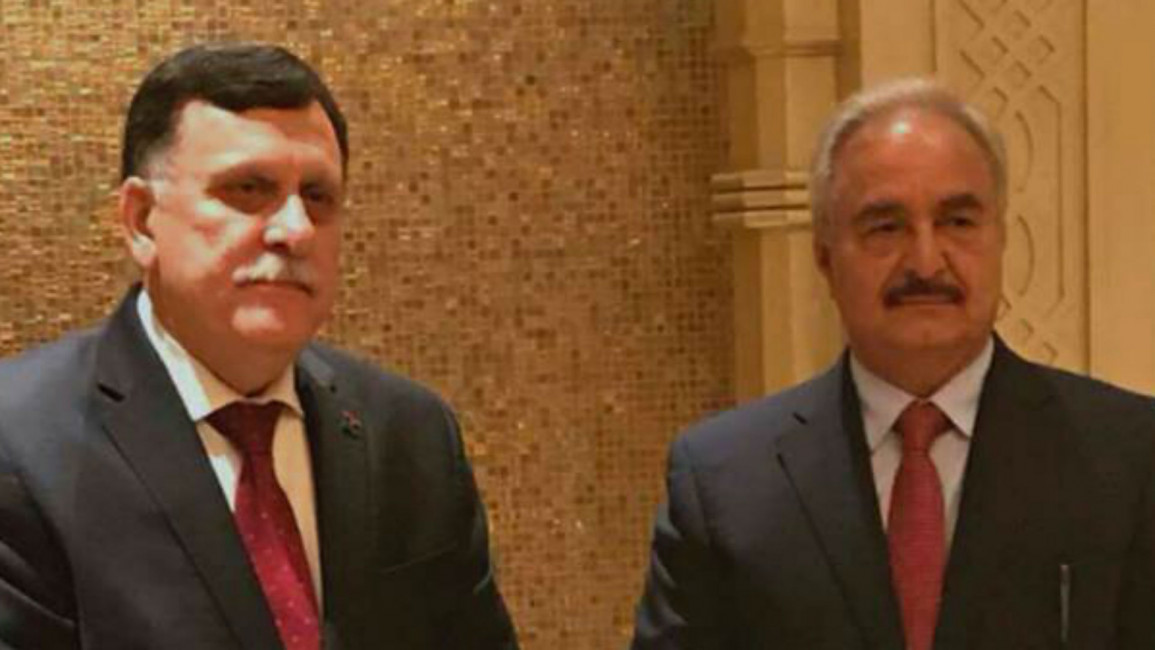Truce in Libya? Haftar and Serraj agree to elections
President Fayez al-Sarraj and General Khalifa Haftar, the leaders of Libya's two main warring factions, said they wanted to work together in separate statements released on Wednesday.
The two chiefs met for a "successful" two-hour meeting in Abu Dhabi on Tuesday - their first since January 2016.
A leaked agreement from the meeting - which has not yet been confirmed as signed - states that presidential and legislative elections will be held by March 2018 at the very latest. It also says the two parties agree to the UN-backed political agreement, signed in Skhirat in 2015.
The acting president of Libya's House of Representatives said that the meeting was a positive first step.
"Haftar has finally been convinced to work under a civilian organisation," said Abubakr Mustafa Buera.
"The United States said more than once that the army must accept the existence of civilian power."
Both parties' media statements said they wanted to work together to combat the country's economic problems, terrorism and de-escalate fighting in the country's south.
President Serraj of the UN-backed Government of National Accord said the plans laid out "a strategy... to form a unified Libyan army" under civil control.
Twitter Post
|
Serraj had previously accused Haftar, the commander of the Libyan National Army (LNA) in east Libya, of aiming to establish a new military dictatorship.
Haftar said the two sides had agreed to allow "the military establishment... to fully play its role in the fight against terrorism".
Haftar's LNA has been engaged in a near two-year battle to rid east Libya of Islamist fighters - especially those fighting under the Islamic State group's banner.
 |
There can not be a military solution to the current crisis. |  |
The UAE made a public statement after the meeting, saying "there can not be a military solution to the current crisis".
General Haftar has received massive military and financial support from Russia and the UAE and has made regular trips to both Abu Dhabi and Moscow over the past year.
The UAE has even provided General Haftar with war planes and mercenary pilots, some of which have been used to attack the GNA's forces at al-Sabha airbase in southern Libya.
President Serraj has lobbied in the past to establish a military council, headed by Haftar and presided over by a civilian government, which can help counter the GNA's current inability to maintain security.
General Haftar previously said that he wanted to 'liberate' Libya's capital, Tripoli, from the GNA and the "gangs" that control the streets using military power.
Haftar refused to meet with Serraj in Cairo in February and on other occasions in Moscow and elsewhere - leading to speculation that he was after total power.
Explaining at the time why he had refused a meeting, Haftar said they could discuss democracy and elections "once we have defeated the extremists... but not now."


